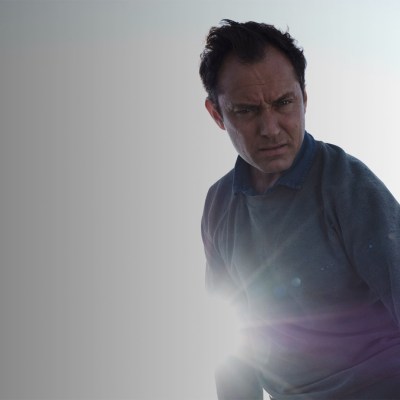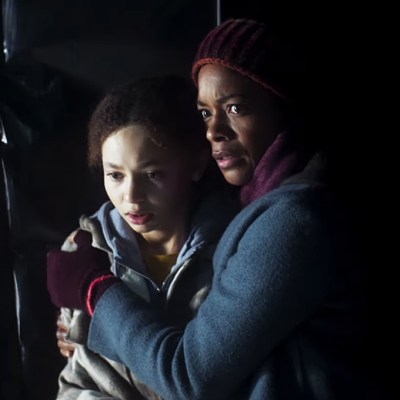The Third Day’s Dennis Kelly: ‘If people are telling you they’re good, you’ve got to be careful’
The writer of Channel 4’s cult virus thriller Utopia tells Den of Geek about goodness, grief, and the dangers of isolationism in captivating new experimental Sky-HBO drama starring Jude Law: The Third Day
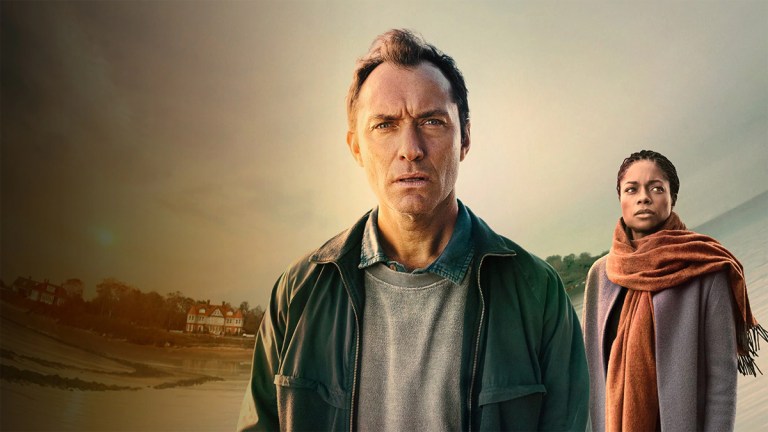
The fascinations of Dennis Kelly are worth paying attention to. A decade ago, the playwright and screenwriter was kept up at night by the looming shadow of overpopulation and global resource scarcity. He channelled that concern into Channel 4’s Utopia, a global pandemic conspiracy thriller that in 2020, could hardly be more timely (serendipitously, Amazon releases the long-gestated US remake this month).
Before that, Kelly’s plays were preoccupied with the suspicion of outsiders fostered by the so-called War on Terror, from which you might draw a straight line to Brexit and Trump. You could call his work a barometer for crisis, pointing audiences towards the thing we need to worry about next.
Kelly’s latest project, he tells Den of Geek, was driven by a need to explore the reality-distorting effects of grief, and concern about growing isolationism. The Third Day starts as the story of Sam (Jude Law), a man sucked into the mysterious ways of a strange British island. It’s neither a horror nor an allegory, says Kelly, but it is packed with unsettling images and nightmarish twists.
The Third Day was created in collaboration with Felix Barrett of the Punchdrunk theatre company. It starts with three-episode TV story Summer directed by Utopia’s Marc Munden, then becomes live immersive theatre event Autumn, both of which star Jude Law. It will conclude with Winter, a three-episode continuation starring Naomie Harris, due to air in October. The show really catches fire in episode two, promises Kelly. “That’s when it starts to go crazy. Episode three is just mental.”
Kelly tells Den of Geek about the strange real-life island location of Osea, the commonality of pain, his impatience with the rules of genre, and why you should be suspicious of anyone who tries to tell you that they’re a good person.
You’ve said before that you write about things that are bothering you and that you don’t necessarily have an answer for. When you started writing The Third Day, what was bothering you?
So much, I’m so angry!
Aren’t we all?!
It’s an angry world we live in! Often these things are a combination of personal and big stuff. In terms of the big stuff, I was bothered by isolationism. We started this probably about eight or nine years ago and at that time, I was very worried about isolationism, and it seems to have got worse since then. This is worldwide, not specifically to do with the UK, although obviously I’m writing from within that plane.
The other thing on my mind was grief. I’d wanted to write about grief for a long time but to properly deal with it and the idea of how grief can do really strange things to your mind. We all experience it at some time in our lives. When I lost my dad – this is a long time ago now – but I remember that week thinking ‘I could get used to this. This is a strange place. It’s painful and it’s difficult, but there’s something warm about it and it answers all questions’. I think some people don’t ever leave grief. I wanted to write about that.
That’s an idea Emily Watson’s character repeats in The Third Day’s first episode, that pain can have warmth?
That’s where that came from, that line is something like ‘Most people are scared of pain, they don’t know how warm it can be.’ It’s true.
It reminds me of your stage adaptation of Pinocchio having the idea that pain is the one element shared by all human beings, and only by experiencing that can Pinocchio become a real boy.
That’s right.
Is that from the original story?
No, that was mine. In the Disney version, when you become true and good, you become a real boy and I just thought that is awful, what an awful message to be sending to kids. When you’re good and when you do what we tell you, then you can be real?! It’s a terrible message for kids and I wanted it to be about something more than that. Pain is… every one of us experiences it, it runs through all of our lives, but we don’t have to be terrified of it.
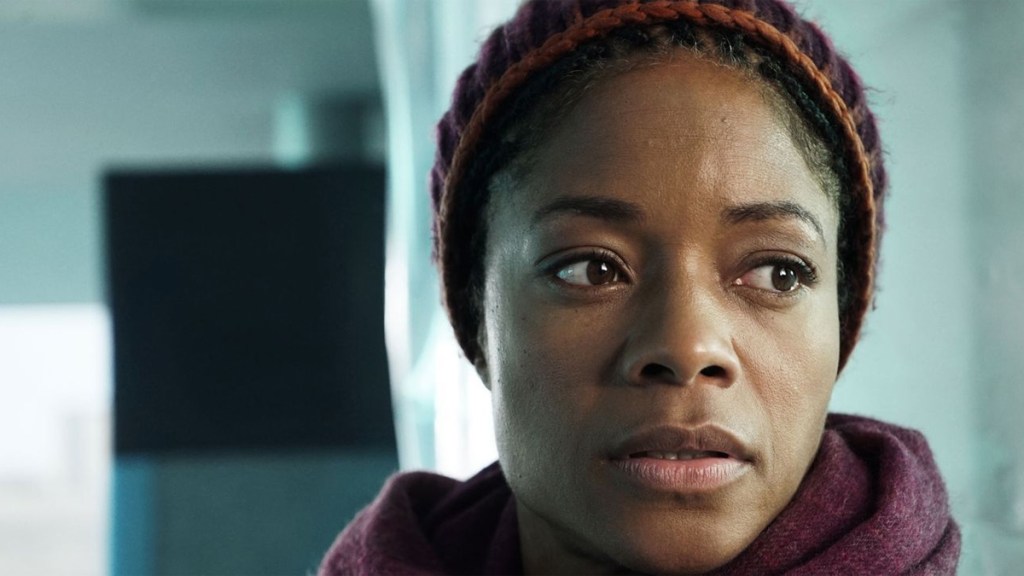
How did the island of Osea come to you as a location for The Third Day?
That was Felix [Barrett, Punchdrunk artistic director and The Third Day co-creator]. Initially we thought we would set it in a town but we knew we wanted our character trapped and we realised that a town wasn’t going to work because it’s hard to get trapped in a town in the UK. It’s not like America where you might have one road in and one road out, and if you go out into the wilds, you’re going to die. You can walk, if you really need to, between most places in the UK, even remote places in Scotland. So we felt like we needed something a lot more remote and then Felix found Osea. Because it’s only available by causeway, you can only get there twice a day. Once the tide comes in, you’re stuck, you’re staying there, you’re not getting back until the next day, 10 hours later. It just was perfect.
What’s the atmosphere like on the island?
I really like it. It’s a strange thing, some people loved being on Osea. Paul Kaye, who’s in the second block of episodes, absolutely loved it, he couldn’t get enough of it. Naomie Harris, who’s also in the second block, just said she really hated being on the island! She found it really, really difficult. Personally, I really like the feeling of separation. There are no shops. Once you’re there, you’re there. The first time, I remember walking around with Felix and finding all these locations, these things that ended up in the show, just thinking, this is special, this place, but weird.
Islands are special places, aren’t they? I grew up on the Isle of Wight and there’s a real sense of identity and a connection to tradition I’ve never quite found the equal of on the mainland.
All over the country there are all these weird places. That was something Felix was interested in, that there are all these slightly strange traditions that are still there. I was brought up a Catholic and Catholicism is incredibly Pagan. We eat pieces of someone’s body and it turns into their body while it’s in you. And you’ve got one God, but that God is in three parts. It’s so Pagan. In really Catholic countries – my ex-wife is Italian, so I used to spend a lot of time there – I remember going into churches in Naples and there’s so many bits of dead people in there, preserved, a bit of a dead saint’s toe or a dead saint’s finger or a dead saint’s heart. For me, that’s always there. The image that is over every Catholic is the Sacred Heart, which we used to have in our home, which is Jesus with his ribs torn open, it’s quite a brutal image.
Have mythology and religion always been an interest of yours?
I have really conflicting views towards religion. I’m not a believer but sometimes I feel like I am because I want to be. I sometimes think I can believe in things that I know aren’t real, but it doesn’t matter as long as it makes me happy. Religion can do amazing things and it also can be incredibly manipulative and destructive in people’s lives and can allow people who are doing really very bad things to continue doing those bad things. These things are very complicated. Any simplistic statements about them are always doomed to make things worse.
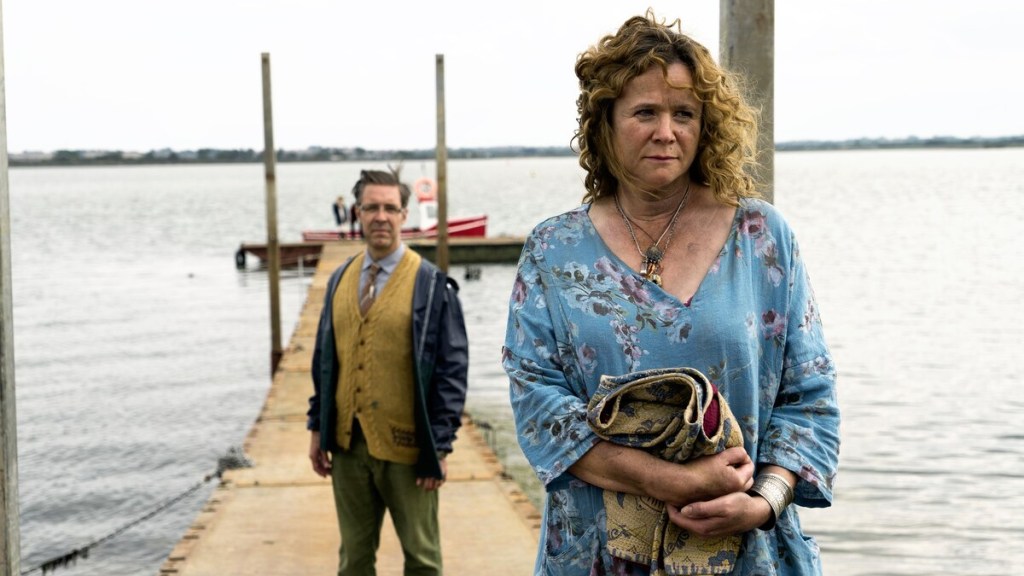
What’s the significance of sobriety to The Third Day? How important is the temperance side of Osea to the story?
That came in because we realised that [former 19th century Osea owner] Frederick Nicholas Charrington went there and tried and create this sober community on the island. Osea had a treatment centre – I think Amy Winehouse went there at some point – which was closed down I think. It has a connection to it.
When I’ve watched it back, I’m surprised at the amount of drunk characters there are in it. There are two or three. There are some plot twists that turn on so-and-so being drunk, so it does become important. Because I had struggles with alcohol and I’ve been sober now for nearly 19 years – 19 years, Jesus Christ, that’s like an entire person – I don’t know how much of that was conscious or whether that was bleeding in there.
There’s a lot of talk in The Third Day about goodness. There’s a real insistence about the islanders being good people, about so and so being a good man, although their behaviour doesn’t seem to exemplify that?
I think if people are telling you they’re good, you’ve got to be careful! Watch out for them. People who say ‘I’m a really straight person, me’ are the most twisty-turny little fuckers! [Laughs] You’ve always got to be careful. The islanders talk a good game, but their actions show something quite different.
In Utopia, you presented us with this paradox about goodness, how for humans, love is this positive thing that connects us and inspires heroism, but it’s also what makes us do brutal things to other people to protect the ones we love. The same thing inspires both goodness and evil.
I think that’s so right. You’ve sort of nailed what I was trying to write about really. It’s an obsession of mine. You can look at the worst humans who do the most awful things and they think they’re doing it for the right reasons. Dictators don’t sit there thinking how evil they are, they think ‘This needs to be done for the greater good’, and then they do appalling things to huge amounts of people.
A good example are paedophiles, weirdly. Watching paedophiles being interviewed, they seem to need to think that a kid is culpable in this, often. They totally aren’t, obviously. It’s crazy that they have to bend all of reality to still believe that they’re still a decent person inside. The same is true of violent men who have to believe that they had to beat their wife up, because ‘she pushed him to it’. We need to bend reality to be good, but also the desire to be good is incredibly powerful and it can lead us to do amazing, amazing things. It’s our brains that fuck it all up, because our brains pervert that desire.
Tell me about Jude Law’s character Sam in The Third Day, and the grief he’s experiencing.
Sam’s someone who’s gone through something really, really terrible and probably hasn’t processed it, perhaps because it might not be possible to process something that bad. It’s meant that he’s not at all sure of what’s going on, which makes him vulnerable but also makes him fall victim to the island and what it’s doing. The island is a very strange place. There is a belief that runs through it. They believe that Osea is the soul of the world and if you’re on Osea strange and important things can happen. The vulnerable part of Sam becomes attracted to that.
Sam’s a strange character. I kind of wrote him for Jude. There are some really interesting places in Jude, a lot of versatility. His performance is extraordinary in this. I find him magnetic but at the same time I’m not entirely sure where I stand with him, which is really interesting, because Jude Law is not like that as a person at all, he’s really easy to get on with!
Episode one has a combination of fairly banal elements, like garden centres and planning officers, alongside some very weird stuff like ritualistic murder and strange creatures snipping evil out of children. Would you say that The Third Day slips between those two worlds of reality and fantasy?
I think they co-exist in our culture. The snipping is based on a tradition in a German village where people go around on a certain night of the year and look around to see if your house is clean and if it isn’t, they snip you open and put the dust in your belly. Obviously they don’t really snip you open, but it’s based on a real tradition. I remember explaining Bonfire Night to my Italian ex-wife and she was going ‘You burn him?!’ It’s so dark, that we actually burn a man who was burned all those years ago, we keep burning that guy. So I think we already live like that, we just don’t notice it because it’s ours. Catholic traditions, you don’t really notice them because they’re yours, but if you step back from it…
It was important as well that it didn’t feel as though you were stepping into the past. We didn’t want you to think this could be the 1960s, or this could be the 1860s, we didn’t want it to feel like it could be another world, we wanted it to feel very much like this world.
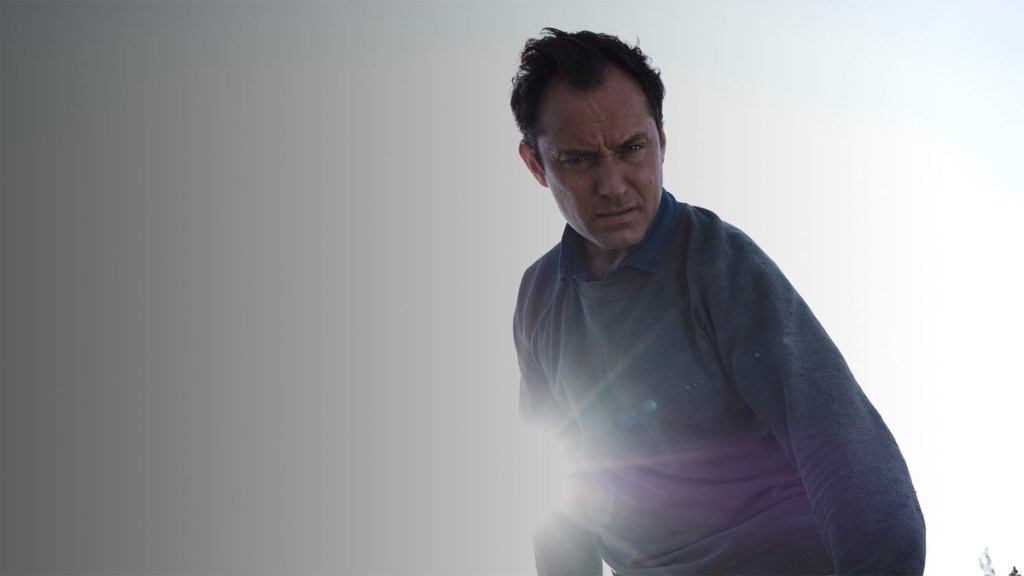
Do you like your audience to be on shifting sands in terms of whether we’re in reality or inside the perspective of a character who might be suffering from grief that distorts reality?
I think so. Certainly in this. Not for arbitrary ‘I’m going to spook you’ reasons but partly because I think the world is a bit like that, you don’t really know where you stand with people. Drama tends to deal in absolutes. Characters are often written almost like they have a list of attributes and you’ve got to score them by that. Their morality may be 10 and their deviousness may be 2. That’s just not true, the world doesn’t work like that. We’re not Dungeons & Dragons characters. From day to day, we shift and change, because we’re constantly adapting to the world and I like the stuff I write to reflect that.
What’s your approach to genre? Are there parts of The Third Day that don’t take place on terra firma, that are a fantasy inside Sam’s mind?
Possibly. I’ll be honest, I don’t really understand genre. I think I end up writing within genre a bit, but never really consciously. If someone says ‘what is a horror film?’ I don’t really know. I wrote Matilda The Musical and I didn’t really find out how to write a musical first because I wanted to write a story. So I don’t know what those rules are. I’m never really that interested in finding out what the rules are for writing things, I feel the same with genre. I wouldn’t be bothered about finding out what the rules were for writing a horror film or for writing a fantasy adventure or a sci-fi film, I think what I would do is just write the story.
Are you resistant to interpretation of your work?
Not at all.
In episode one then, you see an island trying to protect its way of life and a suspicion of outsiders. At one point, Paddy Considine’s character mentions Somalian refugees… it made me think of the refugee boats landing on the Kent coast and the racist opposition to that.
I think that’s there. It’s not an allegory for anything. It’s not like you’d look at The Third Day and think ‘That’s the UK and Paddy represents this element and Jude represents another element’. I did want to prod at that though. I wanted to prod at that in Jude’s character, and it later does, that kind of fear of the other. I think that is in people and we’re really terrified of admitting to those things. If we can’t admit to them, then we can’t fight against them and turn them off.
Time and again, the world shows us that isolationism is a really bad thing to resort to, in this time in the 21st century and the 20th century. Isolationism might not have been a bad thing in the 18th century, or in many of the centuries that preceded us when the world was a limitless place, but now the world is totally limited, we’re all over it, we know all of it, and we’re not getting off it, so isolating into small pockets is crazy, and the problems that we face are global problems.
You’ve said that a play can ask a question and not know the answer. Would you say the same for television?
I think it can now, because things have opened up and audiences are after much, much more complicated stories and are much braver and more sophisticated and they’re getting more sophisticated all the time. They want stuff that is genuinely challenging.
Utopia asked a question that it didn’t have an answer for, which is: what do you do about population control? Obviously I wouldn’t advocate what the Network was saying in that but they would turn around and say ‘what do you want to do?’ You want to just sit here and do nothing? They were putting forward a solution that didn’t cause the deaths of millions and millions of people, and they would say if you don’t enact this solution, millions and millions of people will die anyway, because of the way we’re depleting resources on the planet. Utopia did ask a question that probably didn’t have an answer.
I always remember that scene you wrote in the Utopia series two finale, where a member of the Network puts forward a very rational argument for the moral rectitude of slitting a toddler’s throat. I mean, he had a point about overpopulation, and yet…
…and yet he’s totally wrong. I’ve got a one year old now. As far as I’m concerned, if it was a choice of my one year old or the world, I’d say ‘sorry world’. But it’s right as well, if you step back from everything we think and fear, he’s definitely right as well. That stuff is interesting to me because it does put us as an audience in a really difficult position.
Do you like to confront your audience?
I like to be confronted as an audience. I like things that are complicated and difficult, and I think audiences like that as well. I don’t want to preach to an audience, I’ve got no interest in doing that because I don’t know anything more than that audience, but what I like to do, as a member of an audience, is to think and have my notions challenged.
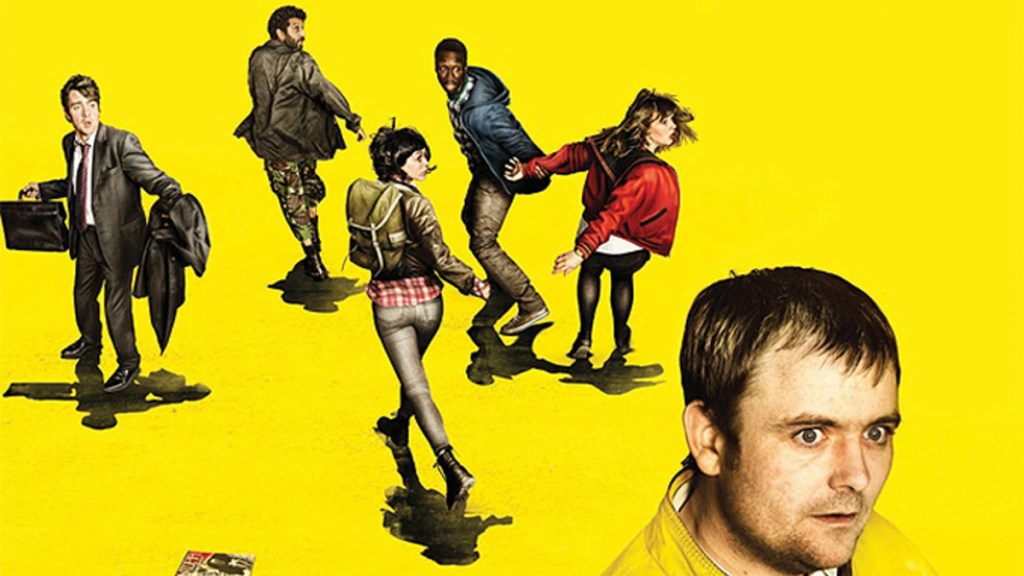
Have you kept having those conversations with yourself about resource scarcity and overpopulation, since Utopia? Is that stuff still bothering you?
Sometimes. What I’ve found about writing is something really, really bothers me, and then I write about it and I move on. When I started writing, I wrote a lot of plays about the War on Terror and the process of writing about it means you get to a point where you don’t want to write it again. There’s something healthy and unhealthy in that – healthy in that the thing that is bothering you, you put into your work because that’s what you should be writing about, what matters most to you in the world, but also unhealthy that you go ‘oh that’s alright then, I’ll move on.’
I still am vexed about overpopulation and I still think it’s something that we’re not addressing. When I wrote Utopia, I remember thinking this will probably come out roughly around the time we hit seven billion. We’re approaching eight billion now, and we will go further. Then we’ve got another problem which is under-population because our population is growing older. There’s not an instant solve for these problems but I think it goes back to the idea of not being isolationist. The only way we can really think about these things is to think about the human race as one whole, as opposed to thinking about it as tiny, tiny pockets.
The Third Day: Summer starts on HBO on Monday the 14th of September and on Sky Atlantic and NOW TV on Tuesday the 15th of September.

